The Midland Hotel - Morecambe
Home Page / Art Deco Home / Midland 1933 / Midland Home Page / Gallery
The Midland Hotel 1939 - 1945
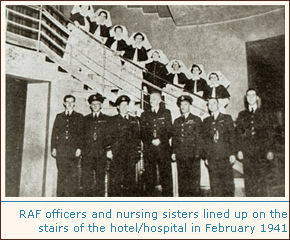
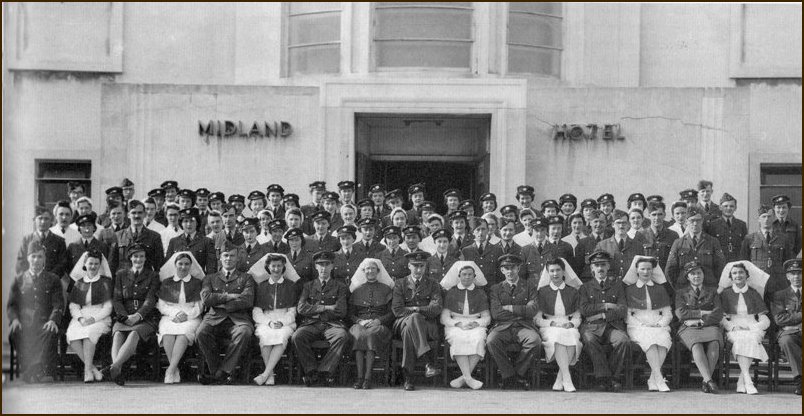
"The Midland Hotel in the Centre of the Promenade was a hospital for all ranks and was used for all Service personnel, even for people coming to see specialists from outlying units of the R.A.F."
Dad's Army at the Midland Hotel
With all the interest in the newly released film of Dad's Army in February 2016, it seems only fair to showcase the fact that the local Home Guard also went through their paces using the Midland Hotel as a 'backdrop'.
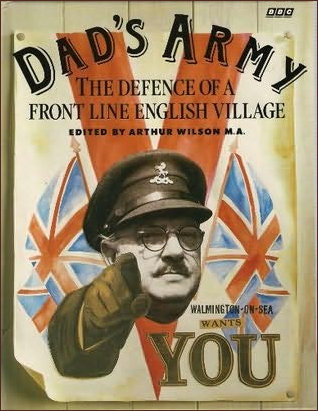
The original sentiment as portrayed in the much-loved television series of 'Dad's Army' image courtesy and © of the BBC
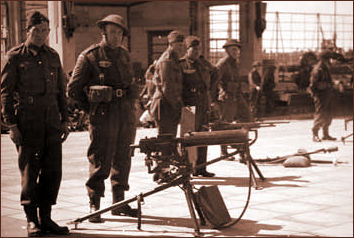
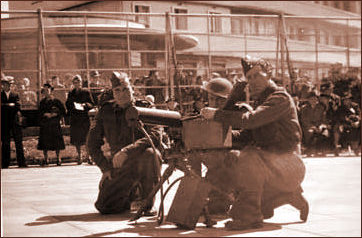
Rare images of the Home Guard going through their paces with the Browning Gun with the unmistakeable backdrop of the Midland Hotel looking out to sea.
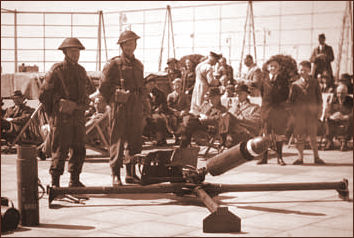
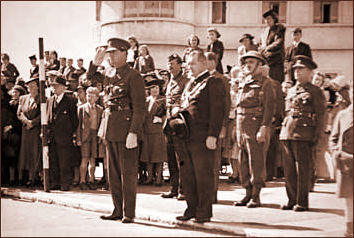
Residents of Morecambe of all ages looking on admiringly as the Home Guard present the Browning Gun and then parade at the front of the hotel. Images originally seen on Bay on-line and LancasterUK on-line (links no longer available) - now available on the King's Own Regiment (Lancaster) website
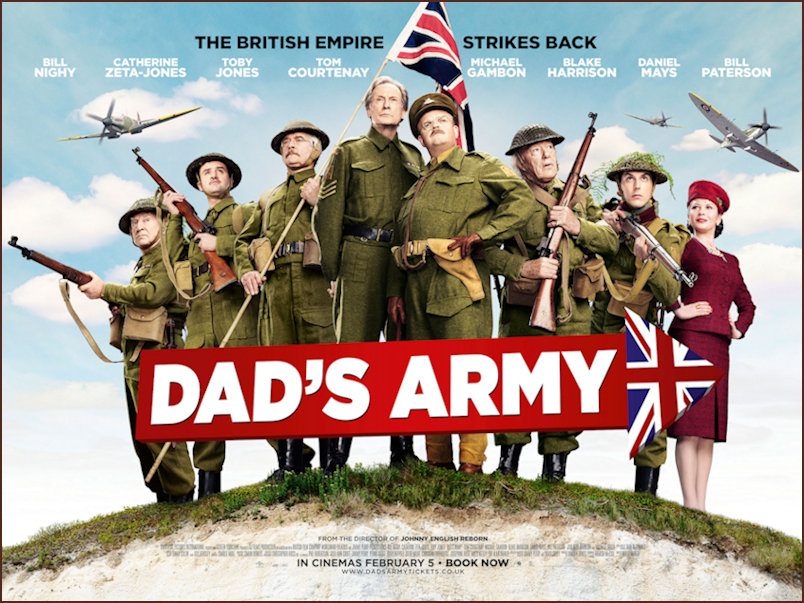
The new 'Dad's Army' film poster courtesy and © of The Radio Times
Memories of a W.A.A.F.
During the Second World War I was stationed at Morecambe in Lancashire as a W.A.A.F.
Approximately 300 girls a day were posted to Morecambe and all were billeted in civilian houses of the town for two weeks. We had lectures, inoculations, FFI's and learned to march on the promenade. It was a seaside town. The bay onto the Lake District was comprised of an area called Bare at one end, Central Pier and the Clock Tower, then Heysham End where the Army units were stationed.
The Battery Hotel at the end was for Officers only. The Midland Hotel in the Centre of the Promenade was a hospital for all ranks and was used for all Service personnel, even for people coming to see specialists from outlying units of the R.A.F. The Bare promenade and sands were not used because of quicksand. The road leading to the Clock Tower was used for Medical Staff billets and was known as Bed Pan Alley.
Right along the road facing the promenade were lots of hotels and large shops such as Burton's and the Winter Gardens where we danced and saw Stage Shows. A number of Officers lived in the Central Hotels. One Burton's was a Medical room where men were checked for overseas fitness. Another was used as a NAAFI and we took our W.A.A.F. underwear to be changed for new if necessary, we would walk back with our corsets in our hand.
One of the W.A.A.F. Officers was very artistic, she painted the brick pillars in the NAAFI with Airforce flying scenes whilst we were having a lecture. All Chapels in the town were used as M I {medical inspection} rooms, mostly for treating blistered feet.
The Railway Station was opposite the Midland Hotel and nearby was a fun fair which visitors used and screamed as they used the Big Dipper. The Y.M.C.A. was a hut in the town and two inner huts. Also a small isolation hospital near to the local church at Bare end. The local hospital was in the town centre and was not used by any service personnel.
I had ten billets in Morecambe. - An M.T.{medical training} unit was also there plus a Polish Squadron.
Source : via the BBC submitted by Ex W.R.A.F Corporal Joyce Borley. Service Number 2061441. Hospital Wardmaster's Office, Midland Hotel, Morecambe. Medical Staff. Now known as Mrs. Joyce Jenkins
JOAN'S WAR
Wartime Memories
My father was a male nurse at Lancaster mental hospital. When war broke out, he was in a reserved occupation because of his job. The sad thing was, often they were handed a white feather but someone had to stay behind and care for the patients. We didn’t come off badly in Lancaster. We did hear the sirens go but it was usually because the bombers were heading for Barrow dockyards etc. One night they did drop bombs on Bowerham Barracks and a land mine at the mental hospital but most people thought it was an error: that they mistook it for Barrow.
Everywhere we went we had to carry our gas masks, it was like ladies carrying a handbag. Babies had a very big gas mask which went completely over them and children had a Mickey Mouse type gas mask.
In Queen Street, I can’t just remember whereabouts, was an ammunitions factory and workers came to stay here from Coventry. In part of Waring and Gillows on North Road they made glider parts, mainly the wings. I had to leave my job and I went there on nights, helping to make up the plywood. All, or most, of it was shipped over from Canada.
The Midland Hotel on the promenade at Morecambe was taken over as a hospital for the wounded soldiers, sailors and airmen who had been injured in battle. They would be pushed out on to the verandah in their beds to get the sea air.
The whole area of Lancaster, everywhere, was in total darkness at night, complete blackout. There were no lights showing from your home and no street lights.
The fun side of life during the war was that at Morecambe dance halls we always had lots of partners to dance with because soldiers and airman were billeted around Bowerham Barracks (which is now St. Martin’s College) and Halton Camp was used as a T.A. camp for square bashing for airmen in Morecambe. Of course everything was rationed and you had food and clothing coupons. You couldn’t buy stockings so we used to buy lotion in a bottle to rub some colour on our legs; some even used gravy browning and if you had a steady hand you used to draw a line down the back of your leg to look like a seam. Often, if people heard of a shop having a delivery of certain hard to get foods, a big long queue would appear very quickly.
Source : via the BBC submitted by Lancshomeguard the personal page of the CSV Action Desk at BBC Radio Lancashire. All the stories below have either been collected from CSV volunteers, or are input directly from those who have listened to the call to action on air, to "tell your WW2 story"
Page updated : 11th August 2017